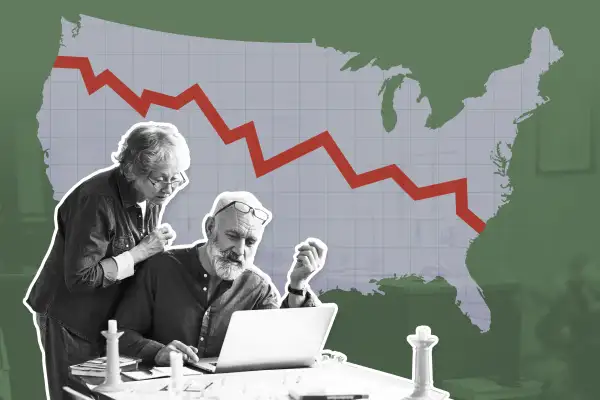What's the Best Country for Retirement? The U.S. Isn't Even in the Top 10

It’s going to take a miracle. At least that’s what 41% of Americans surveyed in a recent study said when asked about the chances they’ll be able to retire comfortably.
That’s a sobering statistic for anyone who hopes to enjoy a nice retirement in the U.S. And it gives a pretty good indication of why the U.S. is not considered one of the top countries in the world for retirement.
In fact, the U.S. is routinely well out of the top 10 in the rankings. The annual Global Retirement Index study by Natixis Investment Managers put the U.S. in the 17th spot this year. Last year, we were in 16th place, and in 2019 the U.S. was ranked down at 18.
What's the best place to retire?
Why is the U.S. consistently ranked fairly low in the retirement index, and what countries are best for retirees?
Iceland came out on top for the third year in a row as the best among 44 countries in which to retire. It was followed by Switzerland and Norway, and they've all been in the top three over the past two years. The study factors in health, quality of life, material wellbeing and finances in retirement, and these three countries outperformed the U.S. in all categories.
While the top countries’ scores dropped from 2020, they retained their spots in the rankings. What made the U.S. drop by one spot? One major reason was a decrease in life expectancy. The pandemic pushed life expectancy down by more than two years for men in the country, and more than 1.5 years for women, according to an Oxford University study published Monday.
That’s the biggest drop of any nation included in the study. The fall in life expectancy is a dramatic indication of poor health outcomes in the U.S., and it's especially frustrating because America spends more on health care per individual than any other nation (also according to the Natixis study).
Many people are worried about retirement in America, and with good reason. We have an aging population, high healthcare costs and a global pandemic that has worsened already stark economic inequality. About twice as many people retired in 2020 as did in 2019, many involuntarily and without adequate financial preparation.
“The pandemic has exacerbated financial inequality and accelerated long-term trends that are eroding the prospect of retirement security for many,” Jim Roach, Senior Vice President of Retirement Strategies at Natixis Investment Managers said in a press release earlier this month.
Despite the U.S. having one of the wealthiest economies in the world, individual investors worry that worsening income inequality is hurting Americans’ overall chances of retiring comfortably, the study found.
People are also concerned that the social safety net for older adults in the U.S. is not as reliable or generous as it should be. The Treasury Department recently revealed the Old Age and Survivors Trust Fund, which is used to pay monthly benefits to retirees, is on pace to be depleted a year earlier than previously expected.
More from Money:
Still Paying for College at 65: A Growing Number of Americans Are Retiring With Student Debt
You'll Probably Have to Retire Earlier Than Planned, Research Finds. Here's How to Prepare
'It Just Took off Like Wildfire.' 3 Surprising Ways Retirees Are Making Extra Cash During COVID-19
